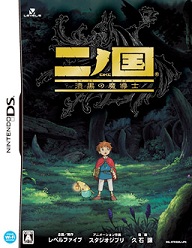« Valkyria Chronicles DLC comes to non-Japanese markets | Main | Wind of Nostalgio hits Japan today, launches web comic »
The Future of Real Currency MMO Exchanges.
By Michael | November 6, 2008 at 12:43 am
Michael Wayland and RPGLand took some time over the past month to do some research, and interviewing some experts on a burgeoning industry that affects many MMO player’s virtual characters and worlds, Real-Market Transactions.
Real-Market Transactions, or RMTs, are any exchange made by players to purchase, or trade any virtual item or gold for real currency. This most often manifests itself in the practice of gold farming, character selling, or power-leveling services. The industry is split with how to deal with these issues, most of the larger traditional MMO developers and publishers have taken hard stances against any RMT made within their products, while other more independent upstarts take a laissez-faire approach, most notably Linden Lab’s Second Life which allows any players to profit from their in-game creations and “property”. Still others prefer to take a more center line in their philosophy, such as Sony Online Entertainment’s, regulated RMT purchases in Everquest 2 where players can buy items for cash from other players using SOE’s system. RPGLand has interviewed people on both sides of these issues, asking them their thoughts and their predictions on where we are and what may come.
Lets begin with Andrew Schneider, President of Live Gamer. In 2007 Andrew and Mitch Davis, formerly of Massive Inc, founded Live Gamer as a response to perceived inefficiencies in secondary RMT markets and rampart fraud in the RMT industry. Even with these pitfalls players provided a clear demand for RMT trades. Live Gamer works with developers/publishers and provide a secure RMT solution within the EULA (End-User License Agreement) guidelines. Some of their current clients are SOE, with Everquest 2, Funcom, Aklaim, and Interzone.
RPGLand: Do you believe Real Market Transactions are the inevitable future of MMOs?
Andy: I believe that RMT is a time-money exchange where some players have time and others have money, and there is a way to balance that.
RPGLand: What are, in your opinion, the downsides to RMTs, if any?
Andy: The way that RMT has evolved it has become a real nuisance to players and publishers. I think you can remove all those negative things by creating a secondary market working in concert with the game world.
RPGLand: Isn’t there an inherent disparagement from those with money vs. those without?
Andy: There are people with more time and people with more money, there are different reasons why people immerse themselves within MMOs, guys/girls with a lot of time and a great skill in what they’re doing are going to be better at playing the games than a newbie that just bought a character. Sometimes the game can be in a sport, guilds taking on instance with 1 class and the same items.
RPGLand: What would you say to those companies that have taken a hard line stance and are philosophically opposed to RMTs and actively working to block any and all RMTs in their games?
Andy: I don’t disagree gold farming has created problems in games; RMT can be made to be balanced to keep these problems minimal. But market conditions and pressures will find a way to bring RMT to a game. There are many reasons people play MMOs and gain pleasure out of it, which can be generalized in a few groups:
Achievement based players – These are competitive players who wish to earn their place in the world through their own skill and play.
Social players – They get fulfillment more from interaction with other players.
Total immersed – They may not have time but want to see all that a game has to offer.
Role player – They prefer no externalities affecting their play.
RPGLand: Will RMT systems be able to be imposed on already established and released games or is this something that must be planned during the design and creation of a game’s systems?
Andy: Both are valid, with established games there may already be a black market system built up. User demand will find their way in different ways, if you embargo a demand a black market will be created and find a way to service that desire.
RPGLand: Are the RMT systems Live Gamer uses a “closed system”? (IE people can purchase gold/items with money but cannot pull real money out)
Andy: Our Player-to-player model enables a marketplace on a cash-out basis. A seller can use Paypal to withdraw money, minus a fee from the publisher and/or Live Gamer.
RPGLand: Should RMTs be kept strictly in the free-to-play realms and not within the more hardcore MMORPGs?
Andy: There’s an opportunity in both, I believe the market came out of the hardcore gamers. There’s different sensitivity levels, free-to-play players, buying micro-transactions are more used to that type of transaction and may be more likely to accept a RMT.
RPGLand: RMTs seem to work much better in markets where they are the norm, such as Asian markets like Korea; will RMTs ever truly be accepted and become the norm for players in North America?
Andy: I do believe these Asian models are gaining traction in the US and lowering entry barriers, allowing people to enter the market that where never here before.
RPGLand: What stance should companies take towards RMTs?
Andy: I would like to err on the side of the consumer and find solutions that are additive to a product. If consumer desire are pointing towards one way and becomes a tidal wave we should find a way to serve that need. It may be disruptive but in technology often
RPGLand: Should players own their characters/items (china decision, “enlightened EULAs”)
Andy: Intellectual properties are important and EULAs are important and EULAs need to be clear and articulate and whatever marketing message is going out there needs to be clearly defined. The IP is clearly the property of the publisher with players getting limited license to use their product. We are very clear that players do not own the property
Okay, editorial time. Here’s the thing, real-market transactions, gold farming, character selling, all of the above; like it or not there is a demand for this. It seems that there are two primary responses a publisher can take towards this.
Embrace it; safely and securely provide this service for their players to use, or not use. This approach can be seen in Everquest 2 and Second Life, hopefully by doing this the publisher will head off the shady and black markets thus providing the player an overall better experience. But there are hazards here to look out for as well, what happens once a real world value is set on a digital item? When there is a virtual currency with a real exchange rate? The problems arise in real world laws of property, theft, and reimbursement. By setting a value, there may be real legal consequences of deleting an account, loss of an item, or perhaps just the oft used nerfbat. Are these players entitled for reimbursement for the “assets” lost? Most people might think certainly not, but cases like this have come up worldwide. In China, a court ruled that these virtual items constituted property and deleted items where to be reinstated or reimbursed. The simple act of valuing digital items may open a Pandora ’s Box we can’t begin to see the bottom of.
Reject it; this has often been the current modus operandi of the large publishers and the big MMOs currently released. Mythic Entertainments head Marc Jacobs is notorious for his hate of gold farmers and their ilk. They have a specialized team whose job it is to find and ban any and all gold farmers within Warhammer Online. In his own words on a post at his personal blog he’s stated “I HATE GOLD SELLERS WITH EVERY FIBER OF MY BEING.” Citing their detriment to player’s enjoyment through their continued use of chat spamming. While this may very well be so, is it really cost efficient for a company to fight so hard? I applaud their efforts for trying to create a great game for players through this added expense of theirs but will it ever be enough? How about players who accidentally get banned on suspicion, it happens from time to time. Like Andy was saying, there is a demand for these services. Players today can be busy and may not have the time, or desire, to grind out 60 levels in World of Warcraft before joining their co-workers on a raid and would prefer to pay someone to get them there. For them the experience is social, and only found at the end of the level mill when they can focus on playing with friends. While this scenario isn’t everyone, it shows a point of why there is this demand. Regardless of how Machiavellian publishers get with their attempts to stop grey or black RMTs they will lose to the economic pressures.
So what is the solution? I’m not sure, but I tend to side with the idea that this will always happen to some extent in an MMO game. I don’t believe publishers should waste as much money and personal as often many do, instead I believe an early plan or possibly publisher sanctioned RMT is the best way to go to combat the unsavory grey/black market side effects that often harm players experiences. But there will be many legal questions that could potentially arise because of this. I’m not sure if the potential harm to the industry these laws could inflict is cause enough to fight the inevitability of RMTs.
RPGLand would like to that Andy and Live Gamer for their time and expertise for this article.
Sources: Online Games are a Niche Market
Topics: Editorials, Interviews








